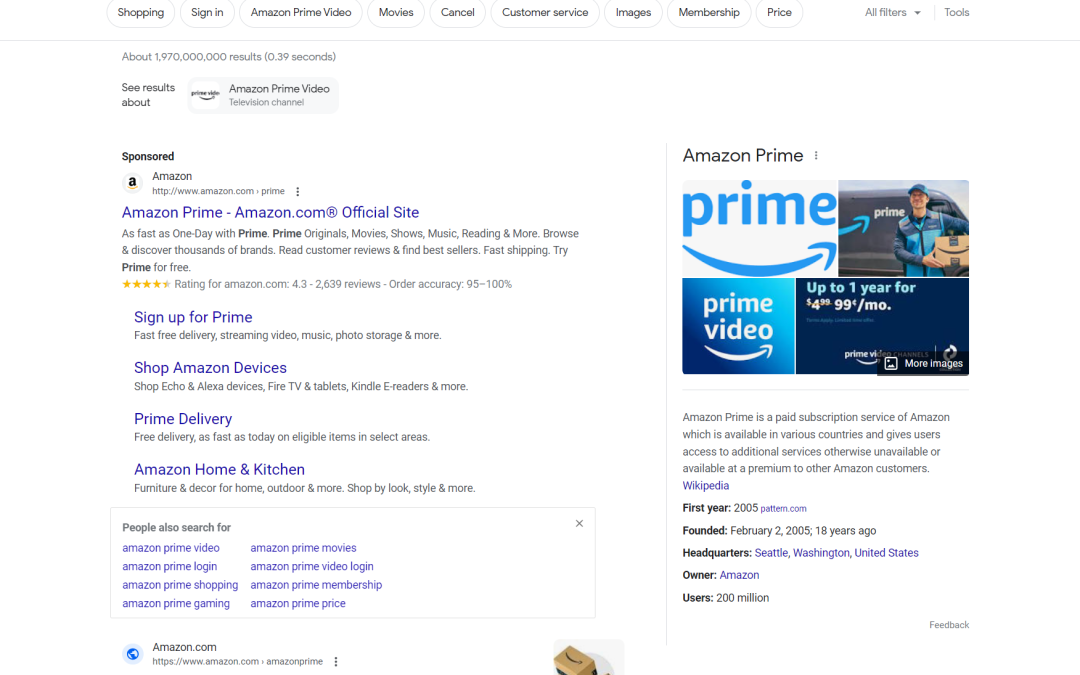When searching, you should take care to avoid clicking on advertised results. Advertisers create these results, and it is easier than ever to trick users into believing the advertised result is a link to a legitimate company.
In some of the scams I have seen, the result links to fake warnings that your system is infected with endless popups and an inability to close the browser window. Others pretend to be major companies like Hewlett Packard (HP), complete with 800 numbers (but not for HP).
These results are dangerous and lead users to make calls that can potentially have them giving credit card information over to unscrupulous users, thinking they are dealing with legitimate companies.
The proper remedy is to train users to avoid advertised results.
While discussing advertisements online, it is my experience that most advertisers are merely scammers. This seems to include YouTube advertisers, search results, and even TV and Radio advertisers.
The scam? Mainly to get your data and endlessly market to you. Once they have a buyer’s profile, next comes the barrage of emails, phone calls, and web promotions to market every scam the advertiser is in bed with.
On TV and Radio, the tendency is to rely on personal testimony instead of making direct claims about a product. If a company makes a false or unsubstantiated claim about its product or service, it can be held to account for false advertising. The exception to this is the personal testimony of a product user. The thing is that the product user is allowed to lie, even allowed to be paid to lie, because their personal experience is protected speech.
The proper remedy is to train users to avoid responding to advertisements altogether.

